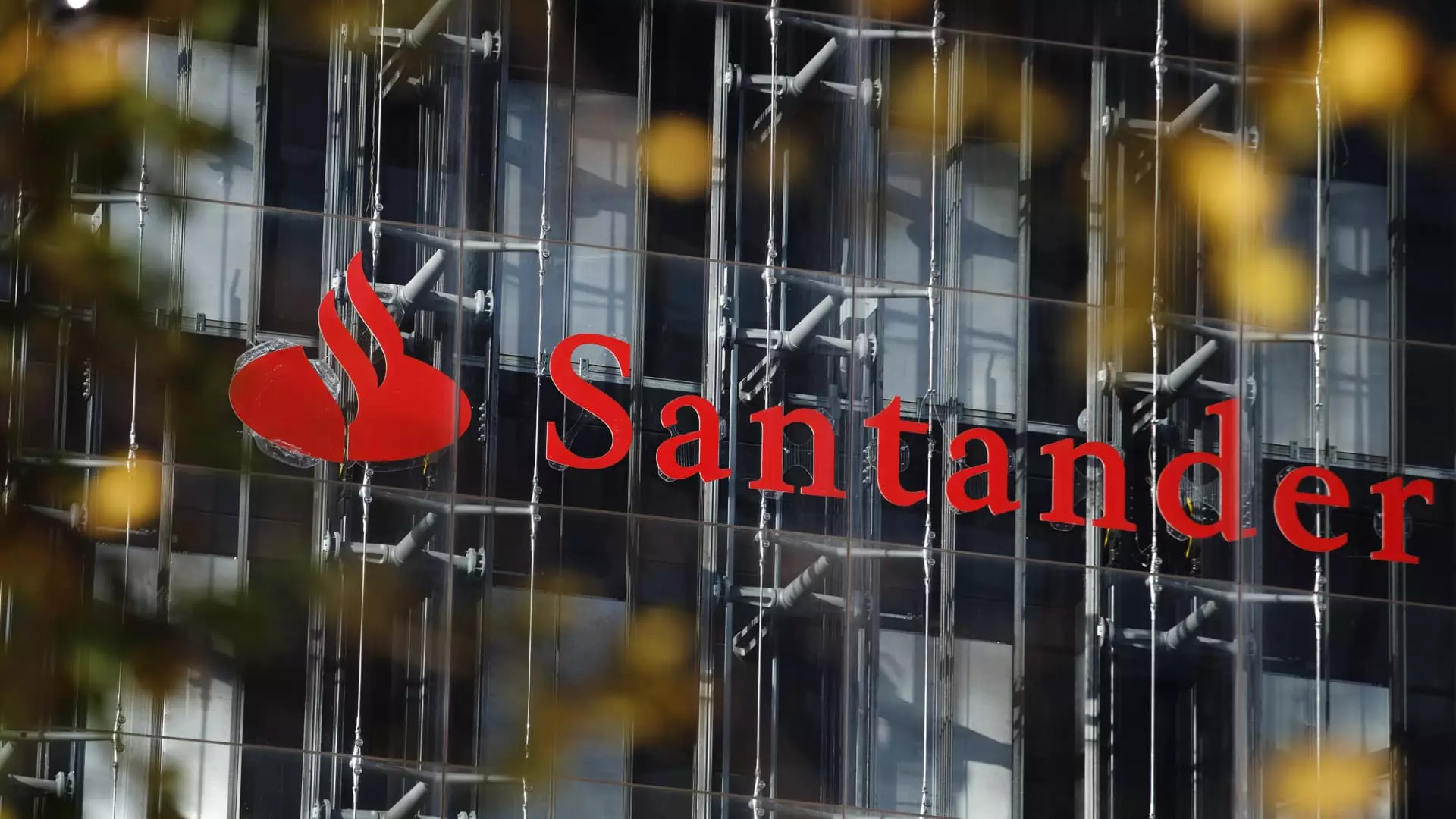In an unexpected twist of fate, Banco Santander has overtaken UBS to become the largest bank in continental Europe by market capitalization. This landmark event comes amid a backdrop of turbulent economic conditions exacerbated by U.S. trade policies, which have had sweeping implications for the European banking landscape. As September ends and market analysts sift through the fallout of imposed tariffs, UBS finds itself on a shaky platform, with its shares plummeting by a staggering 17.2% in 2023 alone. In stark contrast, Banco Santander’s stock has surged, reflecting an almost paradoxical resilience in a bruised sector.
This shift is more than just a financial statistic; it’s emblematic of the varying vulnerabilities across Europe’s banking giants. While Santander revels in growth, UBS grapples with detrimental fallout from high-profile trade wars initiated by the Trump administration—policies that have mercilessly impacted exchange rates and banking operations on the continent.
Trade Wars and Their Ripple Effects
The reality of the ongoing trade tensions with the U.S. has cast a long shadow over European economies, many of which have been reeling from a series of socio-political challenges. Tariffs imposed by the U.S. government—initially set at 20%—were meant to protect American industries but inadvertently inflicted deep wounds on European markets. The recent decision to temporarily lower tariffs seems but a band-aid on a much bigger wound that continues to fester, threatening the already precarious growth outlook for the region.
Consider the implications for UBS: with approximately half of its invested assets tied up in the Americas and uncertainty looming over new capital requirements, the bank faces a double-edged sword. On the one hand, a robust presence in global wealth management offers growth opportunities; on the other, increased pressure and scrutiny from Swiss authorities could stifle its ambitions. Does this not highlight a case of systemic mismatches between market expectations and financial realities?
The Currency Conundrum
A strong Swiss franc has historically been viewed as a safe haven, especially during tumultuous periods. However, the currency’s rise poses an ironic dilemma for Swiss exporters, who are bearing the brunt of elevated exchange rates. For UBS, this appreciation translates into potential profitability challenges as their goods and services become less competitive on the international market. It raises an essential question: can UBS survive in an environment where the very currency meant to safeguard its stability becomes a hindrance to its growth?
The effects of tariff policies are compounded by broader macroeconomic realities. The Swiss National Bank is caught in a tight spot, compelled to reconsider its interest rate strategies as the appreciation of the franc threatens exports. Lowering rates—as hinted at in recent statements—could invite inflationary consequences, pushing the bank towards a policy dilemma that could reverberate across the financial sector.
ReArm Initiative: A Glimmer of Hope?
Amidst the chaos, there are chinks of light—initiatives like the European Union’s ReArm plan purportedly aimed at boosting fiscal maneuverability and increasing defense spending. Such moves could provide a much-needed lifeline for European banks, including Santander, which has rapidly rebranded itself by tapping into new sectors through innovative partnerships, such as with telecom giant Verizon.
This proactive pivot towards diversification allows DBS to minimize risks associated with its relatively modest U.S. earnings, which account for only about 9% of profits. While UBS’s challenges are rooted in a market reliant on maintaining a high-performance wealth management division in the volatile environment of U.S. regulations, Santander is adopting a forward-thinking approach that may protect it from the fallout of U.S. trade policies.
A Center-Left Perspective: Embracing Change Amidst Chaos
For those leaning towards center-wing liberalism, the changing dynamics between these banking giants spell a broader commentary on the importance of adaptability in the financial sector. We live in an age where protectionism and trade wars have complicated the economic landscape. Santander’s rise over UBS illustrates the power of innovation and willingness to venture into new territories, even when the world seems bent on maintaining the status quo.
In this volatile atmosphere, it becomes crucial for banks and financial institutions to recognize that stagnation may be the first step toward decline. As we witness a seismic shift in market leadership, it serves as a clarion call for not only resilience but also for breaking away from traditional methods and embracing transformative strategies. The future of European banking will undoubtedly be shaped by those willing to adapt, innovate, and ultimately challenge the prevailing narratives—both economic and political.

